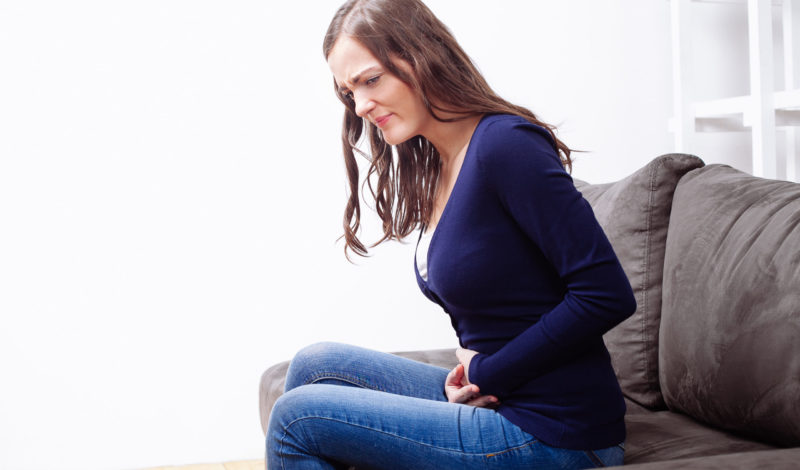Scientists have been intensively researching Crohn's disease and its causes for years. Nevertheless, the disease still poses a number of [...]

Crohn’s disease: What happens during a relapse?
Crohn’s disease occurs in cycles and relapses can happen often. The course of Crohn’s disease makes it so there are periods of discomfort (relapse) and phases without complaints (remission).
So how do you know when the next relapse is coming? And can you do anything yourself to prevent the next relapse?
Crohn’s Disease and Relapses
The symptoms of Crohn’s disease are triggered by increased inflammatory activity in the body. The immune system reacts particularly strongly to harmful bacteria that penetrate the intestinal mucosa, sometimes triggering reactions throughout the entire body. In contrast to ulcerative colitis, another chronic inflammatory bowel disease, inflammation caused by Crohn’s disease is not limited to the bowels but can affect the entire digestive tract.
As soon as the typical symptoms of Crohn’s disease appear, it is usually clear that a relapse has begun. Slight abdominal pain or soft stool can also occur occasionally during remission. However, a relapse is accompanied by acute symptoms that can last for several days, weeks, or even months.
Frequency of Crohn’s disease relapses
The time intervals of Crohn’s disease relapses vary from person to person. Crohn’s disease therapy aims at prolonging the remission phases and preventing relapses. However, medication cannot always prevent the next relapse.
Anyone who has repeatedly suffered from relapses in the early stages of Crohn’s disease is likely to experience even more relapses in the later course of the disease. However, reliable predictions as to when these will occur are difficult to ascertain.
What to do during an acute relapse?
During a relapse, Crohn’s disease patients can alleviate their symptoms mainly with special medication. Medication helps against the pain and can reduce inflammation. For quick relief from the symptoms, patients should consult their doctor and follow the agreed treatment plan.
Consequences of relapses for pregnant women and children
In addition to the acute symptoms, a relapse of Crohn’s disease can have further consequences. In children, repeated relapses can slow down body growth and delay development.
Serious consequences can follow if a relapse occurs during pregnancy. For instance, the likelihood of a miscarriage is increased during a Crohn’s disease relapse. Long-lasting symptoms can also interfere with the development of the unborn child. Most medications can be taken by pregnant women and they should also be taken to prevent a relapse after consulting with a doctor.
If a woman suffering from Crohn’s disease wants to become pregnant, she should know that during a relapse, fertility may be affected.
Can a relapse be prevented?
With remission-maintaining therapy, there are various tried and tested drugs that are designed to delay the next relapse for as long as possible. Doctors also recommend:
- not to smoke
- to have a balanced diet in order to prevent any symptoms caused by nutritional deficiencies
- to receive psychotherapy, if necessary
Strong intestinal mucosa as protection against Crohn’s disease relapses
Studies suggest that strong and healthy intestinal mucosa can prevent the outbreak of acute inflammation and, thus, relapses of Crohn’s disease. Scientists are investigating to what extent these finding can be used in the future for the treatment of Crohn’s disease.1.
If you know the state of your bowels better, it can help you protect this important organ. A step towards a better understanding of your own body can be an intestinal flora test such as a stool test with INTEST.pro from BIOMES. This detailed analysis will tell you a lot about your intestinal bacteria and what effects unbalanced intestinal flora can have on your entire body. Additionally, you get practical tips on how you can improve your intestinal health.
1. Aden K, Tran F, Ito G, et al. ATG16L1 orchestrates interleukin-22 signaling in the intestinal epithelium via cGAS–STING. Journal of Experimental Medicine 2018:215(11), 2868-2886. http://jem.rupress.org/content/215/11/2868




